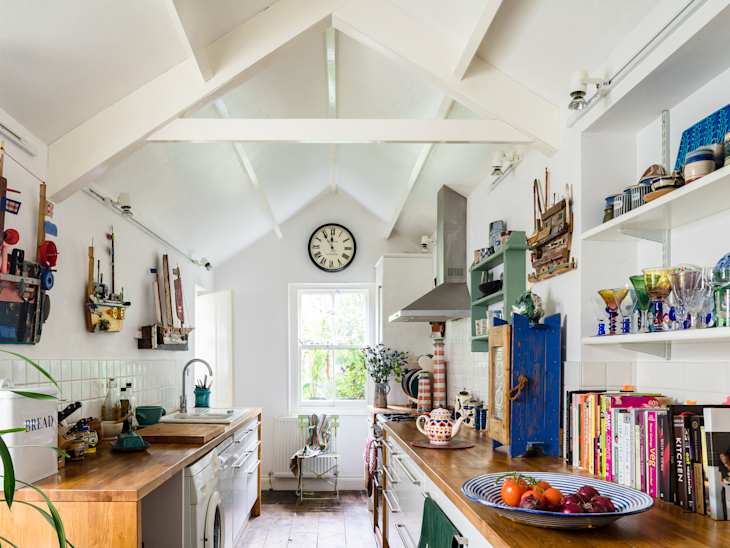

If your kitchen is the heart of your home, then the clutter is its messy, beautiful soul. We’ve all been there: a junk drawer that’s a black hole of forgotten takeout menus and dead batteries, or a cabinet overflowing with mismatched mugs, or a fridge covered in a gallery of magnetic memories. But what if all that kitchen chaos isn’t just about a lack of organization? What if there’s a deeper meaning and it’s more of a window into our psyche?
“Clutter represents old, emotional baggage that no longer serves us and is ‘taking up space,’ where new opportunities could be coming into our lives,” Holistic Interiors Expert and Designer Gala Magriñá says. She adds that it’s something she sees in almost every home her company works on, which is proof that it’s a struggle for many people. “Once you get to the core of what the clutter represents and how powerful releasing it is, it’s an easy one to tackle,” she says.
Dr. William Deihl, founder of Doc Hypnosis, has seen how clutter isn’t just physical — it mirrors how you process emotions, decisions, and identity. “The way we care for our spaces reflects how we care for ourselves; every cluttered corner is a quiet cue worth listening to,” he says.
With thoughts from psychologists, I decided to get to the bottom of what the type of clutter you most gravitate towards means. From the overflowing cabinets to the under-the-sink abyss, let’s dive deep into the psychology of kitchen clutter — and how a little bit of mess might just be a sign of a perfectly imperfect life.
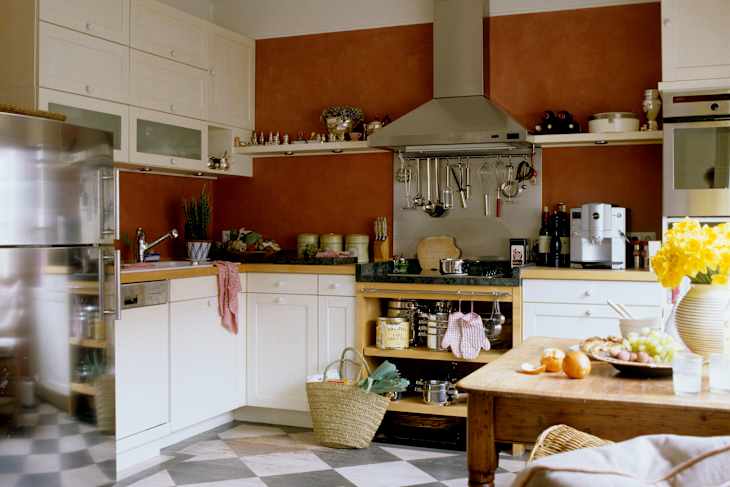
What Your Kitchen Clutter Says About You, According to Psychologists
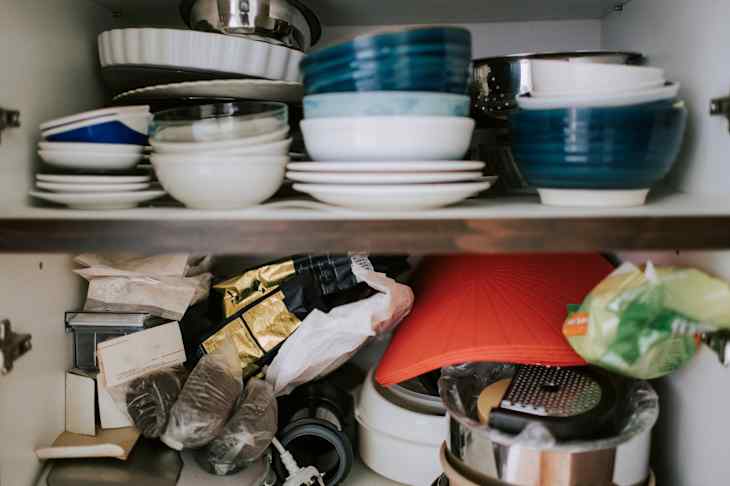
1. Disorganized Cabinets
Disorganized or overly cluttered cabinets can indicate mental overload, according to psychologist Dr. Andrea Lein. However, they can also signify a creative and vibrant mind. “For some, it’s a sign of life moving too fast to maintain order. But for others, especially gifted or neurodiverse individuals, clutter may reflect a mind that’s rich in ideas, possibilities, and divergent thinking,” Lein explains. “These cabinets often belong to people who see 20 uses for everything — and have the passion projects to prove it.”
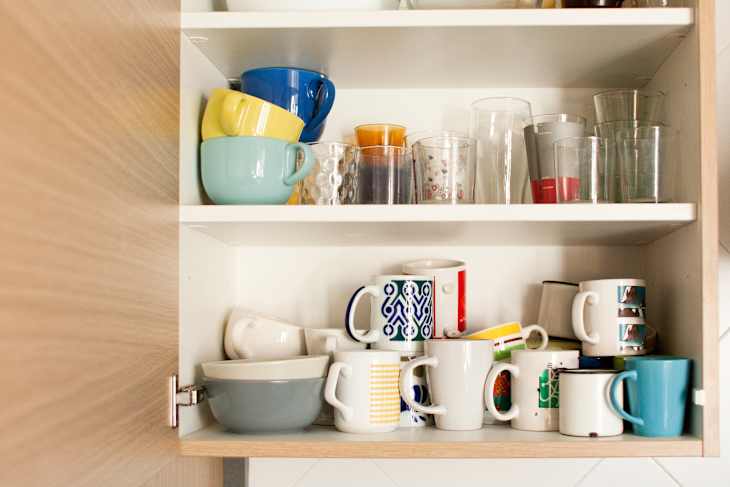
2. The Ever-Expanding Mug Collection
Mugs can carry more meaning than we think. People tend to keep them for emotional reasons — each mug may represent a memory, a routine, or a comforting part of their day. Deihl notes that “these collections can signal a strong connection to identity and sentimental value.” Dr. Greg Gomez, clinical director of Oasis Rehab in California, further suggests that mugs serve as a form of self-expression, with creative or whimsical designs often reflecting the owner’s creativity.
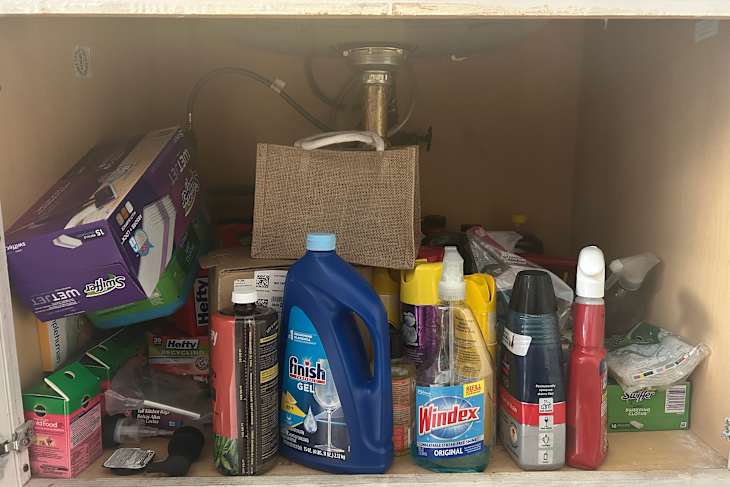
3. Under-Sink Overflow
The under-sink area often serves as a hidden storage space for items you prefer not to confront. “Psychologically, it can signify postponed decision-making or emotional repression,” Deihl explains. “We’re not ignoring issues; we’re simply relocating them ‘elsewhere’ until we have a greater capacity to address them.“
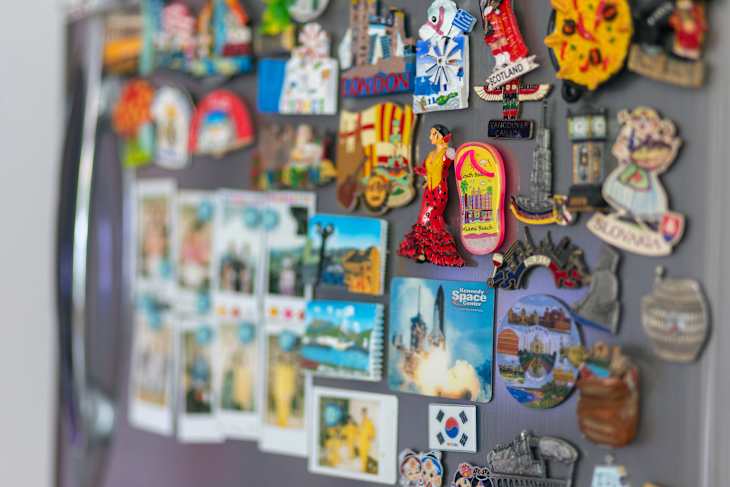
4. Magnet-Covered Fridge
Magnets often represent memories, and Gomez believes that a person who holds onto an abundance of fridge magnets may just want (and need) those visible reminders of travels or loved ones. Deihl concurs, explaining that a fridge full of magnets, lists, and memories typically belongs to someone expressive and emotionally connected. “It reflects a desire to keep meaningful cues visible, whether reminders of family, goals, travels, or self-expression,” he says. “It’s a curated emotional bulletin board.”
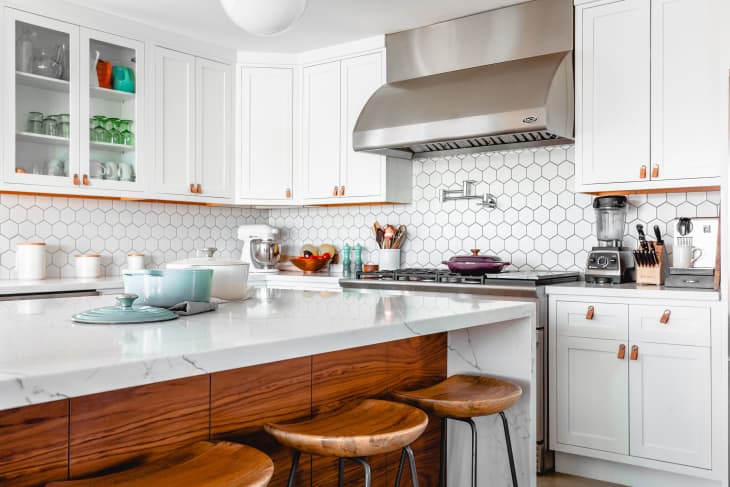
5. Too Many Appliances
Lien suggests that a large number of appliances often indicates an evolving identity or aspirational lifestyle. “Whether it’s a bread maker from your ‘homesteading era’ or a juicer from a wellness kick, these gadgets represent hopes, experiments, or even past versions of ourselves,” she adds. Deihl says that when these appliances remain unused, it can point to a discrepancy between aspirations and the realities of daily life. He views this gap not as a failure, but as “a clue to what we’re reaching for.”
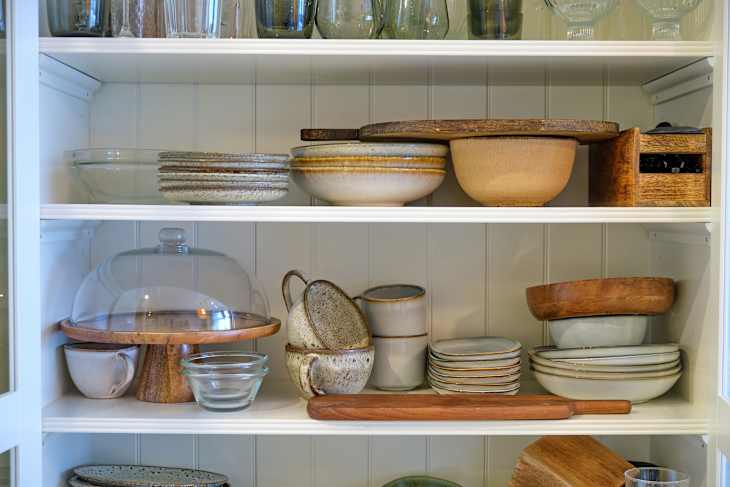
6. Excess Servingware
Seldom the hostess with the mostest, yet you have an abundance of platters and dishes? Well, it might reveal deeply held values concerning care, hospitality, and preparedness. “It can also indicate how individuals perceive their household or family role — as a nurturer, provider, or facilitator of connection,” Deihl suggests.
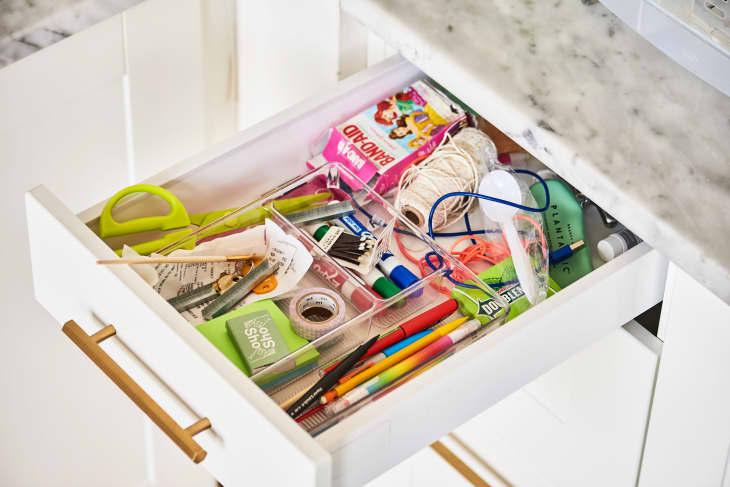
7. The Junk Drawer
Nearly everyone has one, and believe it or not it serves an important function. Psychologically, it reflects how you handle ambiguity, indecision, and transitional items in life, explains Deihl. “Rather than discard or over-organize, we create a neutral zone — a safe space for ‘not sure yet.’”
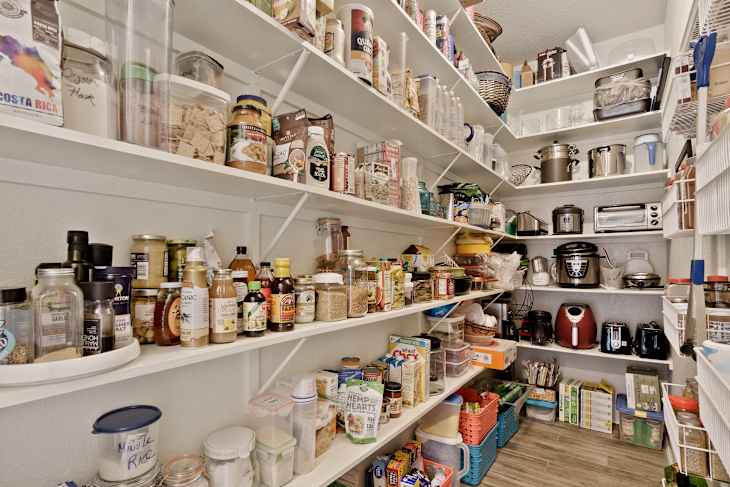
8. Overstuffed Pantry
An overstuffed pantry often signals a profound desire for security and preparedness. It can provide a feeling of control in an unpredictable world. “It’s a form of self-reassurance, especially if past experiences taught us that having ‘enough’ brings peace of mind,” Deihl notes.
What do you think about what your kitchen clutter says about you? Let us know in the comments below!